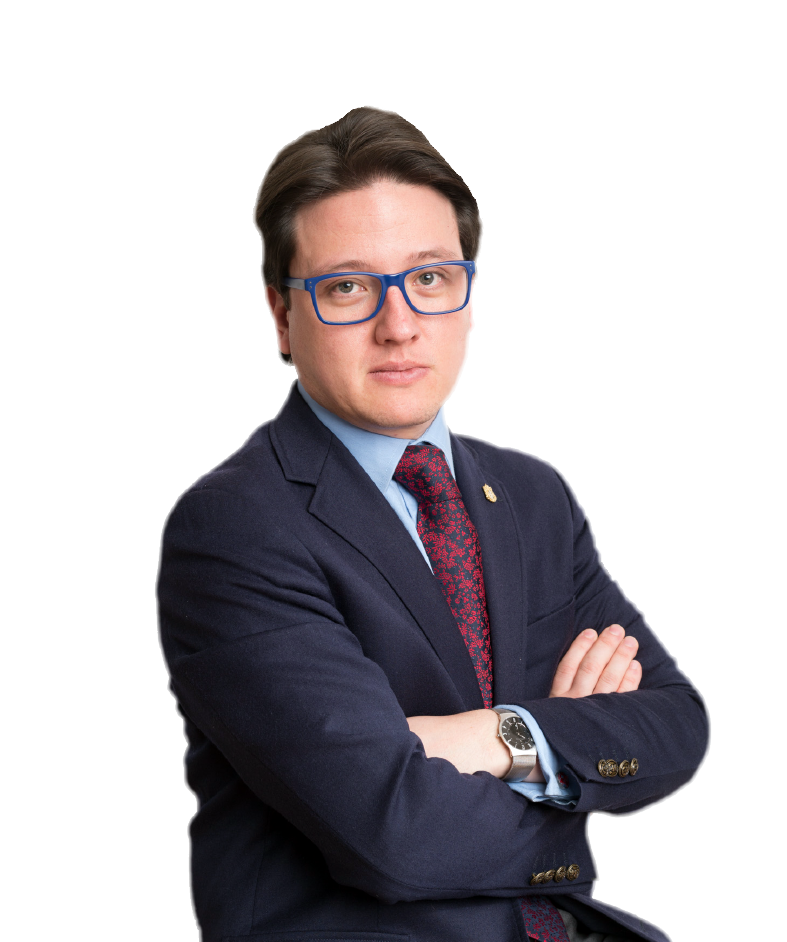Latin Lawyer has registered a 34% decrease in end-of-year partner promotions at Latin American law firms, while the share of female lawyers reaching the most senior rank at their respective firms has remained in line with last year’s figures.
Following a year of rebound from the tumultuous times of the covid-19 pandemic that saw skyrocketing promotion numbers across Latin American jurisdictions, the trend appears to have slowed down. Between December 2022 and mid-February 2023, the months when most partner promotions tend to be announced, Latin Lawyer recorded 138 partner promotions. That compares to 210 promotions during the same time frame one year ago, resulting in a 34% decrease.
The numbers are based on partner promotions at Latin American law firms that Latin Lawyer was made aware of between December 2022 and 15 February 2023.
Over one third of the appointments took place at Brazilian firms, with 49 new partners. The share of Brazilian promotions is smaller than one year ago, when end-of-year partner promotions in the region’s largest jurisdiction represented nearly 50% of the region’s whole.
Mirroring the previous year’s trend, Mexico came second with 40 promotions, while Chile and Peru share the third place with 14 promotions each.
Corporate and M&A remains the practice with the highest number of promotions across the region – 35 in total – followed by tax and litigation with 17 and 15 promotions, respectively. When combining litigation and arbitration into a joint dispute resolution group, partner promotions reached 19.
Firms promoted 11 lawyers to partner in the labour area.
Gender disparity
Although the number of promotions dropped significantly compared to last year, the share of new female partners remained the same. Women made up 39% of the partner promotions submitted to Latin Lawyer, just as it did in the previous year.
Argentina was the only larger jurisdiction that saw solely female lawyers promoted to the senior rank, according to information sent to Latin Lawyer. Bomchil promoted two, while Abeledo Gottheil Abogados SC and Ojam Bullrich Flanzbaum appointed one each.
Javier Petrantonio, Bomchil’s managing partner, says the firm has made important progress when it comes to gender balance over recent years, partly thanks to new remote working policies and focus on the specific needs of female lawyers. However, he notes that gender balance at the partner level is to be reached naturally through equal opportunity. The two new partners – Florencia Pagani and Melisa Romero – have been with the firm for a very long time, and both count strong performance records. “Gender was not a factor in the decision to promote them, but of course we are happy to have them on board as partners,” Petrantonio says.
Firms in the Dominican Republic and Guatemala exclusively promoted female lawyers too, but Latin Lawyer only recorded two firms promoting in the Dominican Republic: Jiménez Peña and Pellerano Nadal Law & Consulting; and one in Guatemala: Consortium Legal. Nevertheless, both jurisdictions are at the forefront in terms of gender equality in law firm partnerships, with an average share of female partners that is substantially higher than the average in the region.
Panama also stands out. Two out of three promoted lawyers were women, both of which took place at Morgan & Morgan. In Peru, 43% of partner promotions were female. Payet, Rey, Cauvi, Pérez Abogados elevated three women to the partnership as part of a four-lawyer promotion, while half of the four practitioners promoted at Rodrigo, Elías & Medrano Abogados were women.
“Gender balance is something we have in mind all the time when thinking about our growth strategies, says Rodrigo, Elías & Medrano Abogados’ managing partner Luis Carlos Rodrigo. Rodrigo comments that, although the firm doesn’t have a set quota, it is definitely more aware than ever of its female talent and that has had an impact on the promotions the outfit has made over the years. “We have named three female partners and two counsel in the last three years, while two female partners have joined as lateral hires in the last five years,” adds Rodrigo.
In Latin America’s biggest jurisdiction, Brazil, 18 out of 49 promoted lawyers were women. That represents 37% of all promotions there, which is slightly below the region’s average of 39%.
Several Brazilian firms elevated female talent. Tauil & Chequer Advogados in association with Mayer Brown only promoted women lawyers, adding two to the partnership, while Machado Meyer Advogados appointed three female partners as part of its eight-lawyer promotion. Stocche Forbes made a similar move, promoting three women out of seven new partners.
Souto Correa Advogados, which appointed two women in a four-partner promotion round, has been attentive to gender balance within its ranks, explains its CEO Guilherme Rizzo Amaral. The firm has set up a committee to help identify gender bias in the workplace and implemented policies to promote diversity, including a maternity leave programme and a flexible working regime. “The fact that 50% of the promotions were women was a very welcomed by-product of the entire process, as it helps us keep our commitment to improving gender diversity within our partnership,” Amaral adds.
Another Brazilian firm that has focused on increasing its female representation in leadership and decision-making positions is Azevedo Sette Advogados. “We continue to support our associates’ education with international universities, and we are helping our female associates to get more exposure in committees and strategic decisions,” says senior partner Luiz Sette.
Carey and Torretti & Cía were the only Chilean firms to promote female lawyers at the end of 2022. Alongside Mexico, the South American country consistently holds one of the positions with the lowest average of female law firm partners in the region. In Latin Lawyer’s latest Diversity Survey, we found that Chilean Elite and Highly Recommended firms in the Latin Lawyer 250, only have 12% female partners on average.
Notably, 40% of all partner appointments in Mexico were women. In comparison, our latest research found that only one in ten partners in the region’s second-largest country are women on average.
Bulking up the ranks
The spike in partner promotions at the end of 2021 may be explained by the return to business and sharp rise in transactional work for law firms as Latin American countries emerged from the covid-19 pandemic. The last 12 months, however, have shown stronger signs of market uncertainty due to financial instability and Russia’s invasion of Ukraine.
While the lower number of partner promotions this year may hint at market slowdown, new promotions remain a way for many firms to make sure that they are providing the best possible services to their clients.
Luis Miranda and Mauricio Raffo, co- managing partners at Peruvian outfit Miranda & Amado, say that adding new talent to its partnership is part of the firm’s strategy to maintain its position at the top of the local market. Miranda & Amado’s decision to reinforce its ranks comes as a direct result of the increase in demand for advice in specific legal areas, namely competition, merger control and ESG-related matters.
For Brazil’s Souto Correa, lawyer promotions are not influenced by external market factors. “We promote lawyers based on their performance rather than on market demands,” says Amaral. “In other words, we do not halt someone’s career should their area of practice become less in demand at a given time,” he explains.
With a similar reasoning, Petrantonio at Bomchil in Argentina says that the two partner appointments at his firm were a result of their skills and adaptability rather than because of market trends.
Adding firepower
Despite the fact that a slowdown in the market may be lurking around the corner, corporate and M&A remained the most popular practice area for firms to promote in – the same as in 2021. Latin Lawyer recorded 35 promotions in the field between December 2022 and mid-February 2023, which compares to 40 partner appointments one year ago.
Corporate and M&A take centre stage at many law firms in Latin America, which explains why it remains a priority for law outfits even in times of market uncertainty. “M&A is in the centre of our firm’s growth,” explains Sette from Azevedo Sette, adding that “despite headwinds expected in 2023, we are optimistic about opportunities this year and we are still open to adding more expertise.”
In line with last year, tax and litigation departments also experienced considerable partner headcount growth across Latin American law firms. Worth noting, however, is that banking and finance was the fourth most popular practice group for promotions one year ago, while this year it does not even feature among the top five areas. Instead, labour beat it to the fourth place, followed by project finance and infrastructure and IP in joint fifth position.
Souto Correa’s CEO Amaral says the firm saw a steep increase in M&A work over the past year, which suggests why many Brazilian firms added partners in that department. In fact, nearly 70% of all promotions in corporate and M&A groups took place in Latin America’s two largest economies, Brazil and Mexico.
Amaral is also expecting increased legal work in other areas. “We also foresee an uptick in tax consultancy and litigation in 2023 due to an increase in demands related to our transactional law practice, potential tax reform and other new fiscal changes,” he says.
A rise in demand for tax advice is likely across jurisdictions, several of which have seen left-wing leaders take office over the last 12 months promising increased taxes for businesses and the wealthy. One example is Chile, where the policies of Gabriel Boric’s administration will lead to more tax work for local firms. As a result, tax was one of the most popular areas to promote in there, representing over a fifth of all partner appointments in Chile.
When economic instability is on the rise, countercyclical practice areas tend to become more popular. One example of this is the litigation area. Miranda & Amado co-managing partners Miranda and Raffo have observed a substantial increase in public law-related disputes in recent years, both in constitutional and administrative litigation, while they note increased interactions between clients snf the Peruvian state. For that reason, the firm promoted one litigation lawyer to partner in the end-of-year promotion in order to consolidate its already well-established disputes practice.
Another firm betting on more disputes mandates is Carey in Chile, which added two new litigation partners in its end-of-the-year promotions.















